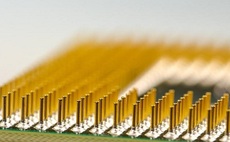US military research establishment to fund research into electronics that can be destroyed remotely
IBM Microelectronics has won a $3.4m contract to conduct research into self-destructing microprocessors. The US Defense Advanced Research Projects Agency (DARPA) is funding the work under its Va...
To continue reading this article...
Join Computing
- Unlimited access to real-time news, analysis and opinion from the technology industry
- Receive important and breaking news in our daily newsletter
- Be the first to hear about our events and awards programmes
- Join live member only interviews with IT leaders at the ‘IT Lounge’; your chance to ask your burning tech questions and have them answered
- Access to the Computing Delta hub providing market intelligence and research
- Receive our members-only newsletter with exclusive opinion pieces from senior IT Leaders


















